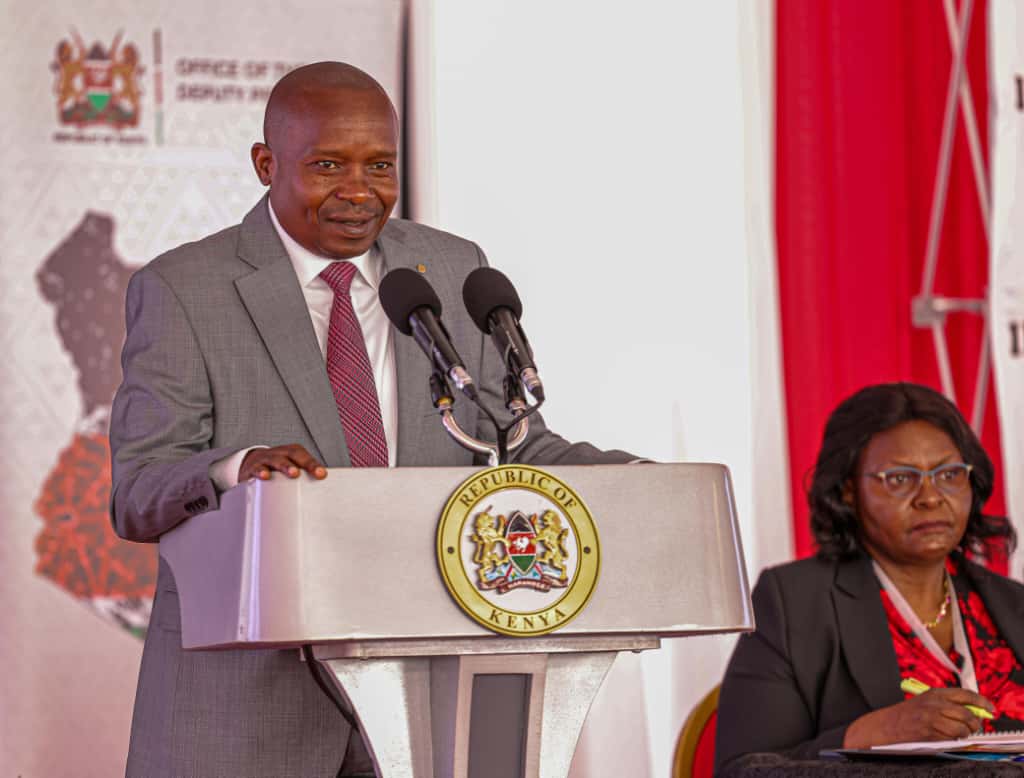

Deputy President Kithure Kindiki has called on county
governments to align their development priorities with those of the national
government to ensure a unified approach to economic growth.
Speaking during the opening of the 28th Ordinary Session of
the Intergovernmental Budget and Economic Council (IBEC) at his official
residence in Karen, Kindiki emphasised that the economy must be viewed as an
integrated whole rather than in separate layers of national and county
interests.
“We must look at the economy as an integrated whole.
Therefore, the priority issues that we are implementing should not be different
between the national and county governments,” he said.
The Deputy President outlined key areas that both levels of government
should prioritise, including maintaining macro-economic stability, advancing
value-chain reforms in agriculture, fisheries, and livestock, and supporting
these sectors with infrastructure development.
He further highlighted job creation, improved healthcare,
and quality education as central pillars that should remain consistent across
county and national development agendas.
Kindiki’s remarks come as the government pushes for stronger
intergovernmental collaboration to accelerate service delivery and reduce
duplication of projects.
He insisted that intergovernmental discussions and
conversations will continue for eternity.
During his address, the DP said that it is time the issue of
pending bills was addressed once and for all, but said that it must be done
innovatively in order to find a lasting solution.
“We must confront this issue of pending bills and resolve it
once and for all. It is very possible to conclusively address it if we do so
innovatively.”
Kindiki noted that the Kenya Kwanza administration is implementing
one of the most consequential healthcare programs in the world, which many
countries have tried unsuccessfully to implement.
He insisted that Kenya is focused on making this work
“What we are doing with Taifa Care is extremely
consequential. Many countries have tried and abandoned providing publicly
funded universal health systems. Kenya has taken a bold step,” Kindiki added.
In his remarks, Kindiki hailed Devolution, terming it as the
promising character of the Kenyan Constitution.
He reiterated that all leaders and institutions must preserve
and implement devolution, the same way the Constitution is preserved and
implemented.
“Devolution is about services closer to the people,
decisions being made at lower levels of governance, making them legitimate. It
is about public participation in governance. It is about the dispersal of power
vertically," he said.
“It is also about moving the country from one centre of
growth in Nairobi to creating 47 centres of growth, simultaneously spurring the
growth and renewal of our country.”
Monday’s IBEC meeting is the fourth that Kindiki has chaired
since getting into office.















![[PHOTOS] Three dead, 15 injured in Mombasa Rd crash](/_next/image?url=https%3A%2F%2Fcdn.radioafrica.digital%2Fimage%2F2025%2F11%2Fa5ff4cf9-c4a2-4fd2-b64c-6cabbbf63010.jpeg&w=3840&q=100)

